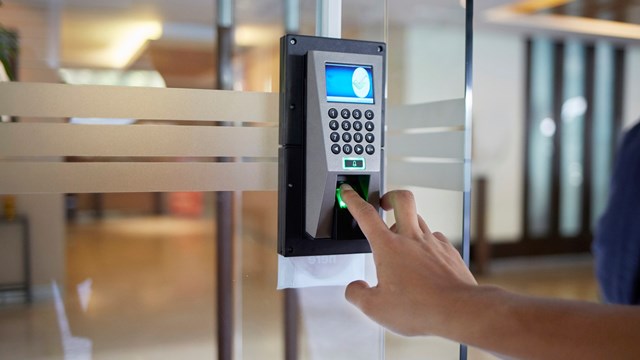Owning a unit in a multifamily co-op or condo carries a great many benefits in the form of shared responsibilities, but it also requires compromises along the lines of control: what your board, management, and building staff can or cannot do. One area where such compromises have the potential to lead to uncomfortable conflicts is the issue of how, when, and under what circumstances residents must grant management or staff access to the unit for maintenance, inspections, and at times emergencies when the owner may not choose or even be present.
How can building managers and board members minimize the concerns of nervous owners who refuse access to their units? These necessary negotiations often have clear protocols enshrined in a building or HOA’s governing documents (and sometimes even local housing codes), but respectful practices of engagement and education around the boundaries that exist can minimize tension, promote transparency, and make a difference in a building culture.
Codes of Conduct and Where to Find Them
Entering privately-owned homes when their owners aren’t present is sometimes necessary for maintenance purposes, and to make repairs quickly in the case of unexpected mishaps. Says Mark S. Einhorn, a partner at the Braintree, Massachusetts-based law firm of Marcus Errico Emmer & Brooks P.C., “Under the Massachusetts Condominium Statute, the managing board has a right of access to any unit for the purpose of maintaining, repairing, and replacing any of the common areas or facilities that are accessible from the unit, or for making emergency repairs necessary to prevent damage to the common areas or other units.”
Because an infestation of pests, a leak, or some other condition in one unit might put the entire building at risk, Einhorn says, “The board could request access to the unit under the statute for the purpose of performing exterminating.
“In addition,” he continues, “many condominium documents contain provisions which grant the managing board the right to mandate that an owner perform maintenance or repair work if the condition of the unit poses a hazard or nuisance to other residents. Clearly, if the unit is infested with cockroaches and/or mice, that condition constitutes an ongoing nuisance and a health hazard to all of the residents in the building. This type of provision is typically found in the bylaws or declaration of trust, and usually states a time period by which the owner must comply with the demand. If the owner fails to comply with the board’s demand, most provisions grant the board the right to access the unit for the purpose of performing the repair.”
Mindy H. Stern, a partner at Schwartz Sladkus Reich Greenberg Atlas, LLP, in New York City, agrees. “The first place to look in understanding liabilities and responsibilities are the governing documents of the building,” she says. “It’s important that the management team and board get clear on the specific language used for the building, because they are not all identical. Typically, these documents speak to notice for repairs, but that is not true for all documents. The key to making this comfortable for all parties involved is for management to give enough notice about the specific times of day any repairs need to be made so that owners and residents can take responsible precautions, like being present or having someone who works in the building – a building manager or superintendent, for example – present at the time of the repair.”
Anne Ward, Senior Counsel in the Condominium Law Department at the Newark, New Jersey-based law firm of Ehrlich, Petriello, Gudin & Plaza, agrees. “Look to the governing documents. Most governing documents set forth when access is permitted, and in fact must be permitted – usually due notice for maintenance and seeking formal permission to enter property. Almost all governing documents say immediate access is permitted, and then give a definition of what is considered an emergency, such as smoke or fire, for example.”
This particular question of what defines an emergency can lead to some sticky situations that require quick thinking. “There are definitely times when you look at the bylaws and say, ‘I wish they were written differently,’” says Stern. Boards and management companies that take the time to clarify such broad language for their building communities at large before a situation arises are better positioned to maintain productive, positive relationships with residents than those that take the ‘asking forgiveness instead of permission’ approach.
Defining Emergency
One of the most important things a board and management team can do is make sure that the community at large is aware of access-granting protocols in the governing documents, and then ensure that what the documents set forth is followed respectfully.
“Generally speaking, an association should only enter a unit when it has the consent of the owner, when it has a court order allowing access, or when there is an emergency,” says attorney Scott Rosenlund of Fullett Rosenlund Anderson PC, which has offices in Chicago and Lake Zurich, Illinois. “Whether a scenario constitutes a legitimate emergency depends on the facts of the particular situation.”
It’s a pretty safe bet that if you are encountering an emergency entry situation, respectful notice of entry is not a possibility. “It is important for buildings to understand an emergency is a real emergency – a gas leak, cascading water, etc.,” says Stern. “Not a slow leak that turns into a problem. That is the sort of thing that needs to be addressed with proper notice and proper channels to prevent such a thing from turning into an emergency.”
This shouldn’t come as a surprise to most residents as the requirement is implicit in building protocol. “Many buildings require that residents give management a key and emergency contact so that there is always someone to reach,” Stern says. Having a key does not a equal a free pass, and some responsibility does fall on the management when it comes to not abusing the convenience and power that having a key to a private unit gives.
“It would, for example, be an overreach for association representatives to enter units without owner consent for the purpose of conducting routine, non-exigent maintenance inspections or to check for rule violations,” says Rosenlund. “In such cases in which there is less urgency, an association has various legal options available for resolving the access issues.”
Local Laws and Governing Documents
State by state, the law may give additional resources to management teams in terms of supplementing the protocols outlined in their client communities’ governing documents – so it’s worth educating board/management teams and making sure unit owners are aware of these legal precedents as well. According to Stern, “Some laws [are] specific to condos in New York State, and require owners to comply with the bylaws. If a unit owner is not compliant with the building bylaws, [the board or manager] can go to court to get an injunction, but you have to look at the bylaws.”
In neighboring New Jersey, Ward says that “The New Jersey Condominium Act (46:8B-15) governs that condos and sometimes co-ops have a provision that states that management shall have access to each unit from time to time during reasonable hours as necessary for maintenance and replacement or for making emergency repairs.”
In Illinois, condominium associations can rely on Subsection 18.4(j) of the Illinois Condominium Property Act. “Subsection 18.4(j) confers upon a condominium association the authority to have access to units as necessary for the maintenance, repair or replacement of any common elements or for making emergency repairs necessary to prevent damage to the common elements or to other units,” says Rosenlund. “Most condominium declarations will reiterate this authority. Non-condominium homeowners’ associations cannot apply Subsection 18.4(j) and typically have a narrower scope of access rights included within their governing documents.”
Liability: When Mistakes Are Made
So, in light of these local laws and the governing documents that all unit owners have already agreed to upon buying into the property, what happens if an owner is non-compliant to the point of jeopardizing the property or endangering themselves and others in the building because they refuse to let workers or other staff into their apartment to address a troubling (and possibly dangerous) condition of whatever type?
“If an owner improperly refuses access, and the denial of access results in common element damage or damage inside neighboring units, the owner could be liable for both the common element and unit damage,” says Rosenlund. Getting to this point is of course to be avoided at all costs, but in the event that an association needs to take action, how can they best protect themselves, and ultimately all unit owners? “Liability would depend on what the results are of the denial to entry, says Ward. “Unless there is immediate and clear emergency, and life or property are in immediate danger, I would seek a court order if the owner is not being cooperative after due diligence is taken to inform the owner and seek access.”
Once a situation gets to the level of taking it to court, it would behoove the association to have kept a record of all attempts leading up to legal action, “First, keep clear and specific records of both written and verbal notifications. Written notifications are superior and I always recommend both regular and certified mail because it provides good proof if the case that an association needs to take an owner to court.”
On the other side of things, if an owner suspects or knows for sure that management or staff has entered their unit improperly or illegally, there are certain steps they can take. “First, management should be contacted immediately – and if the complaint is not addressed they should then contact the board,” says Stern. “Most of the time management understands that if this is a problem in one unit it is most likely a problem in multiple units and needs to be addressed in the best interest of the entire building.”
But these are, of course, circumstances that all parties want to avoid, and some of the best advice about getting the cooperation an association needs from its residents is also some of the most basic that we all know, “If you treat people in a respectful way you are normally going to get cooperation,” says Stern. “Making the owner comfortable with the situation, addressing necessary pet and safety issues, and doing all of this in a civilized way leads to the best possible outcome for all around.”
K. Valada is a freelance writer/reporter living in Chicago and a contributor to New England Condominium.










Leave a Comment